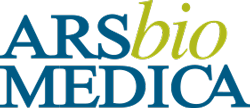The Testing Laboratory of Arsbiomedica Clinic utilizes advanced equipment and highly qualified staff to provide a service with high flexibility in sampling hours and absolute promptness in sending the report, also online.
Esami di Laboratorio
With a simple blood draw, the concentration of numerous molecules or ions can be measured, providing indications regarding health status or supporting the medical team for a quick and accurate diagnosis.
In addition to venous blood sampling, assays can be performed on biological samples (urine, feces, sputum, seminal fluid, and swabs from various anatomical sites) for checks and assessments related to:
- Glucidic and/or lipidic metabolism
Renal functionality
Mineral and bone metabolism
Hepatic functionality
Electrolyte balance
Cardiac damage markers
Tumor markers
Hormonal assays for fertility
Thyroid hormone assays
Vitamin status
Pancreatic enzymes
Infectious agents research
Virological tests (Hepatitis, Mononucleosis, Cytomegalovirus, etc.)
Celiac disease
Transglutaminase IgG-IgA
Anti-Endomysium IgG-IgA
Anti-Gliadin IgG-IgA
Total Immunoglobulins IgA
Genetic Analysis of Celiac Disease
Allergy
Advanced diagnostic test developed based on the most enhanced knowledge in the field of nanotechnology for measuring specific IgE levels.
The test utilizes molecular allergens and allergenic extracts, assessing a total of 295 allergens.
Cardiology
Tests for cardiac markers are performed, reported urgently, including Troponin I, LDH, Myoglobin, and CKMB.
For tests not mentioned, we recommend contacting the Analysis Laboratory directly at 06 361494724
What we do
Hematological tests, including complete blood count and examination of peripheral blood smear, are essential for monitoring and evaluating any anemias attributable to nutritional deficiencies, such as Vitamin B12 and Folic Acid, or other causes.
These simple checks allow for the diagnosis or early detection of severe blood diseases, such as leukemia, lymphomas, etc.
In the analysis laboratory of Arsbiomedica, tests are performed to assess the proper functioning of essential organs such as the liver, pancreas, kidneys, adrenal glands, and heart.
The blood draw should be done after fasting for at least 8 hours.
Tests may also include monitoring the trend of certain parameters throughout the day, with serial blood draws scheduled at specific times.
Coagulation tests are essential for the control and monitoring of anticoagulant therapies in cases of cardiovascular diseases.
With culture examinations and related antibiograms, searches for pathogenic microorganisms are conducted to support the physician in identifying the antibiotic aimed at eradicating the bacterium that, in the specific case, caused the infection.
Virology deals with the research of viruses and related antibodies present in the blood, such as Hepatitis A, B, C, D viruses, Cytomegalovirus, Epstein-Barr Virus (Mononucleosis), and numerous others.
Autoimmune diseases occur due to an abnormality in the body’s immune response toward its own components (cells, organs, or tissues) caused by the loss of natural immune tolerance. This reaction can lead to impairment of the functionality of target organs.
First-level tests are performed, and in case of positivity, specific antibody searches for individual pathologies are conducted, such as: ANA, ENA, profile, AMA, ASMA, P-ANCA, C-ANCA, Antiphospholipids, LAC, Anti-gangliosides, Onconeural antibodies, etc.
In the Testing Laboratory of Arsbiomedica, assays are performed to search for Tumor Markers, molecules that can provide indications regarding the presence of neoplasms. It is necessary to specify that the presence of altered values of Tumor Markers is not necessarily indicative of cancer unless confirmed by other clinical investigations and specific symptoms. However, it is essential for therapy monitoring.
Additionally, hormonal assays are carried out to evaluate the proper secretory activity of endocrine glands such as the Thyroid (TSH, FT3, FT4, etc.), Parathyroids, Ovaries, Pancreas, Pituitary gland, and hormones related to male and female fertility.
Exam Preparations
Observe a fast of 8-12 hours before the procedure.
Thoroughly wash the external genitals. Collect a sample of the midstream urine from the first morning void, discarding the first stream unless otherwise directed by the attending physician. Use single-use containers available at pharmacies. For women, it is recommended to wait at least 3 days after the end of the menstrual cycle.
Thoroughly wash your hands. Wash the external genitals carefully with water and soap. Discard the first stream and collect, unless otherwise directed by the attending physician, the midstream urine directly into the container. Quickly and tightly seal the container and deliver it to the Laboratory as soon as possible. It is necessary to have suspended any antibiotic therapy for at least one week.
Thoroughly wash your hands with soap and water. Cleanse the external genitals carefully. Apply the bag (available at pharmacies), making sure it adheres well to the skin. Leave the bag in place for no more than 60-90 minutes; if necessary, replace it and repeat the process. Immediately after urination, remove the bag, seal it carefully, place it in a sterile plastic urine container without spilling, and deliver it to the Laboratory as soon as possible.
Thoroughly wash your hands with soap and water. Cleanse the external genitalia carefully. Apply the bag (available at pharmacies), making sure it adheres well to the skin. Leave the bag in place for no more than 60-90 minutes; if necessary, replace it and repeat the process. Immediately after urination, remove the bag, seal it carefully, place it in a sterile plastic urine container without spilling, and deliver it to the Laboratory as soon as possible.
Collect all urine throughout the day and night in the following manner: discard the urine from the first morning void and note the time (e.g., 8:00 AM), then collect all urine throughout the day and night in the designated container, available at pharmacies. The next morning, conclude the collection with the urine voided at the same time as the previous day (e.g., 8:00 AM) in the same container. Upon completion, deliver the container to the Laboratory. During the collection period, store the urine in a cool place.
Thoroughly wash the external genitals. Discard the urine from the first morning void, then drink a glass of water. After approximately 2 hours, collect the urine directly into a sterile container, unless otherwise directed by the attending physician. Use single-use containers available at pharmacies. For women, it is recommended to wait at least 3 days after the end of the menstrual cycle. It is advisable to repeat the test for 3 consecutive days and deliver each sample on the same day.
The stool should be collected using the spoon typically provided in commercially available containers, in an amount equivalent to a walnut. In case of delayed delivery to the Laboratory, the sample can be stored in a cool place (2-8°C) for up to 24 hours.
The stool should be collected using the spoon typically provided in commercially available containers, in an amount equivalent to a walnut. It is advisable to perform the test for 3 consecutive days, unless otherwise directed by the attending physician, and the samples can be delivered together on the third day of collection only if stored in a cool place (2-8°C) and with the date of collection written on each sample.
The stool should be collected using the spoon typically provided in commercially available containers, in an amount equivalent to a walnut. For the parasitological examination, it is advisable to perform the test on 3 samples collected on 3 different days and deliver each sample within 2 hours of collection. Additionally, for stool culture, it is necessary to have suspended any antibiotic therapy for at least one week.
Perform in the morning without having washed the area. Use transparent adhesive tape, pressing the adhesive side of the tape onto the anal folds with light pressure. Leave the adhesive tape in place for 10 minutes. Lay the adhesive tape on the surface of a slide, provided by the Laboratory, avoiding the formation of bubbles or folds. Deliver the slide to the Laboratory. For any further clarification, contact the Laboratory directly.
Collect the specimen in the morning on an empty stomach in a wide-mouth sterile container, available at pharmacies. Thoroughly rinse the oral cavity with several gargles of water. Perform a deep cough to ensure the material is from the tracheobronchial origin and avoid salivating. Deliver the sample to the Laboratory as soon as possible.
Collect the specimen in the morning on an empty stomach in a wide-mouth sterile container, available at pharmacies. Thoroughly rinse the oral cavity with several gargles of water. Perform a deep cough to ensure the material is from the tracheobronchial origin and avoid salivating. It is recommended to repeat the test for 3 different days and deliver each sample on the same day.
Follow a period of abstinence from sexual intercourse for a minimum of 3 days and a maximum of 5 days. After thorough genital hygiene, collect the entire semen sample by masturbation into a sterile container available at pharmacies, taking care not to lose any fraction. Deliver the sample to the laboratory as soon as possible, but no later than 30 minutes after collection. Avoid exposing the sample to temperatures below 20°C and above 36°C. The examination is performed by appointment.
After thorough genital hygiene, collect the sample by masturbation into a sterile container, available at pharmacies, and deliver it to the Laboratory.
Hai bisogno di una visita medica o di un esame?
Scegli la migliore cura per te stesso
Scegli la migliore cura per te stesso



